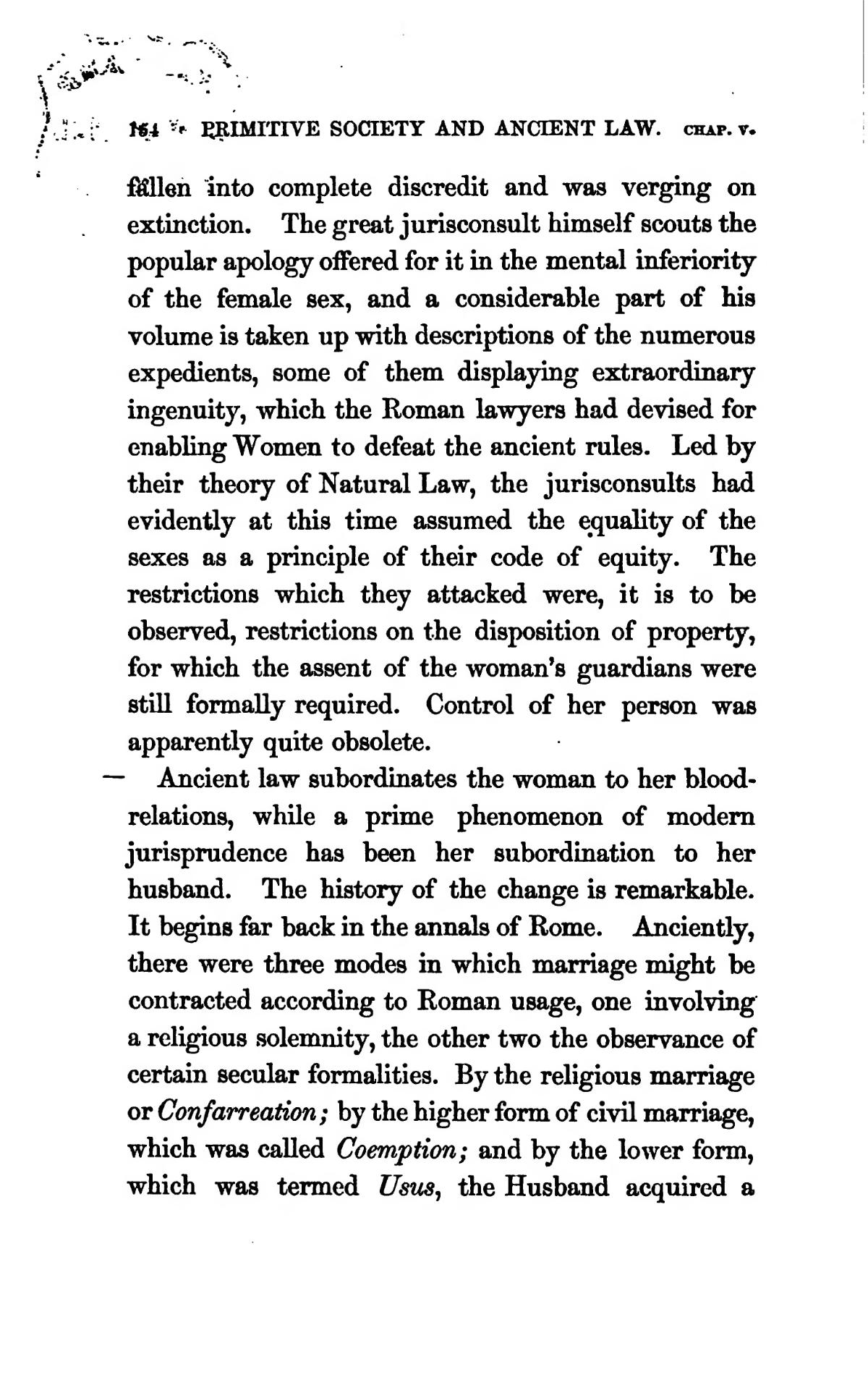fallen into complete discredit and was verging on extinction. The great jurisconsult himself scouts the popular apology offered for it in the mental inferiority of the female sex, and a considerable part of his volume is taken up with descriptions of the numerous expedients, some of them displaying extraordinary ingenuity, which the Roman lawyers had devised for enabling Women to defeat the ancient rules. Led by their theory of Natural Law, the jurisconsults had evidently at this time assumed the equality of the sexes as a principle of their code of equity. The restrictions which they attacked were, it is to be observed, restrictions on the disposition of property, for which the assent of the woman's guardians was still formally required. Control of her person was apparently quite obsolete.
Ancient Law subordinates the woman to her blood-relations, while a prime phenomenon of modern jurisprudence has been her subordination to her husband. The history of the change is remarkable. It begins far back in the annals of Rome. Anciently, there were three modes in which marriage might be contracted according to Roman usage, one involving a religious solemnity, the other two the observance of certain secular formalities. By the religious marriage or Confarreation; by the higher form of civil marriage, which was called Coemption; and by the lower form, which was termed Usus, the Husband acquired a
